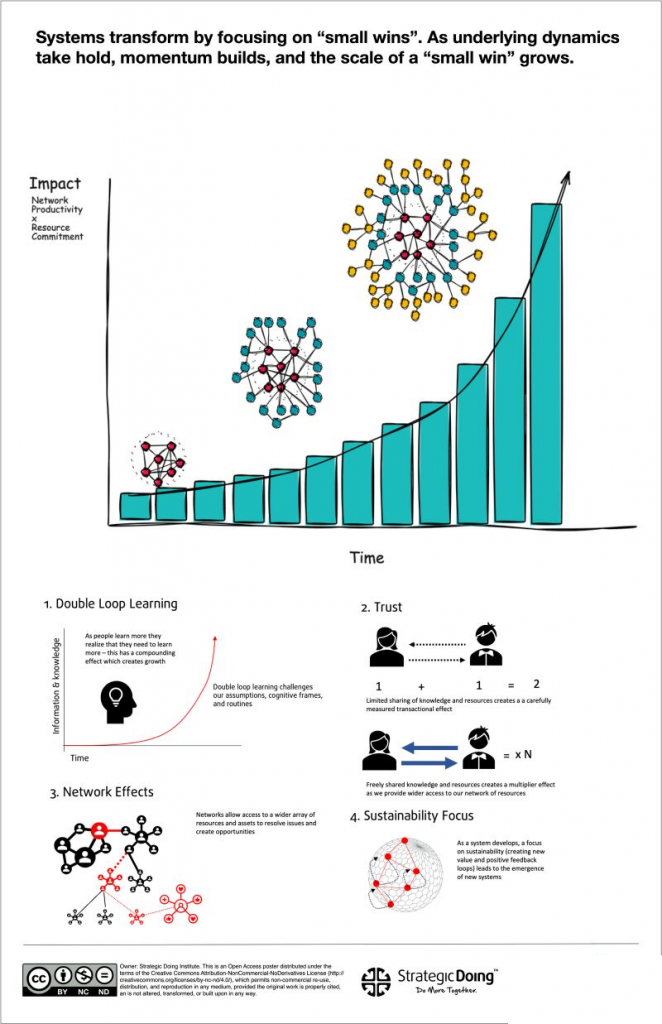The Power of Small Wins
“How is this possible to change the competitive direction of our country if you only focus on small wins?” The question came from a business executive in Ecuador, as we introduced #strategicdoing.
It’s a good question.
But I detected a flaw. My questioner was caught in “either/or” thinking, a false binary choice. He was confronting a complex challenge with an unresolvable paradox. And you can’t resolve the paradox with mechanistic, linear logic. (So stop trying.)Our world is filled with wicked, adaptive challenges. If you approach them with the wrong logic, you end up in a cul de sac, an endless mental loop that leads to a fatal flaw: inaction.
WHY IT MATTERS
In an insightful book, Both/And Thinking (Harvard Business Review Press, 2022), Wendy Smith and Marianne Lewis explore paradoxes inherent in complex challenges. They define a paradox as “interdependent, persistent contradictions” lurking in wicked problems. Trying to understand them with “either/or” logic narrows our perceptions and dramatically reduces the space for creative solutions. The worse case arises when we get stuck in our narrow thinking — we can’t resolve the paradox — and we do nothing in the face of a wicked challenge. (Consider our anxiety and inaction over climate change.)
UNDERSTANDING THE POWER OF SMALL WINS
For scholars in organizational development, Karl Weick is a legend. (Among other essential concepts, he introduced the idea of “sensemaking,” the process by which we create meaning from our collective experience.) As a young scholar in 1984, he wrote an influential paper about how small wins provide a window into complex social problems (https://bit.ly/3krVHAV ). He pointed to a typical pattern that freezes us in our current state: “People often define social problems in ways that overwhelm their ability to do anything about them.”
DIG DEEPER: SMALL WINS IN NETWORKS
Small wins give us a sense of accomplishment but are significant for another reason. Eric Beinhocker reminds us that economies are open systems: open networks embedded in other open networks (Beinhocker, The Origin of Wealth, 2006).
In my practice, I have identified four dynamic processes explaining how small wins can drive system transformation. These dynamic factors include double-loop learning, network effects, trust, and a sustainability focus. There may be others, but let’s look at these four:
>>Double loop learning challenges our assumptions governing our behavior.
>>Network effects arise as we gradually reveal the assets embedded in our networks.
>>Trust emerges from a stable pattern of matching words to behavior.
>>Sustainability focus concentrates on identifying new value opportunities and creating positive feedback loops. (22,000)
